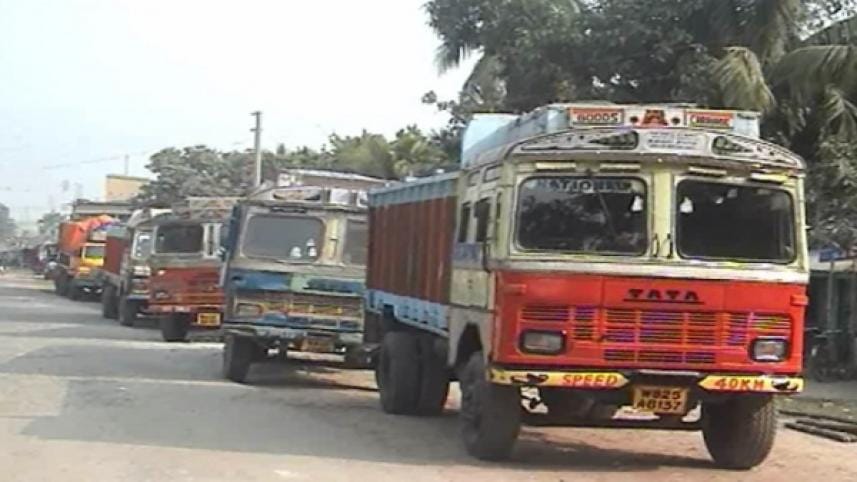India cancels transshipment facility for Bangladesh’s export cargo

NOTE: This article was prepared before further clarification was provided by the Indian Ministry of External Affairs that the transshipment withdrawal measures "do not impact Bangladesh exports to Nepal or Bhutan transiting through Indian territory".
India has withdrawn the transshipment facility for Bangladesh's export cargo to third countries, including Bhutan, Nepal, and Myanmar, via its land borders.
According to a notification issued by the Central Board of Indirect Taxes and Customs (CBIC) on Tuesday, the Indian government has rescinded, with immediate effect, an earlier circular dated June 29, 2020.
The circular had allowed the transhipment of export cargo from Bangladesh to third countries through Land Customs Stations (LCSs) to Indian ports or airports in containers or closed-bodied trucks.
This move could impact the shipment of Bangladesh's readymade garments through Indian airports, particularly Indira Gandhi International Airport in New Delhi, as a significant portion of these exports is routed through India.
The withdrawal of this facility is expected to disrupt Bangladesh's export and import logistics, especially with Bhutan, Nepal, and Myanmar, which rely on Indian infrastructure for third-country trade. The transshipment arrangement had previously helped reduce goods transit time and costs.
India's apparel exporters' council had advocated for the withdrawal of the transshipment facility. Since both Bangladesh and India are competitors in the textile export sector, the removal of this facility could free up more space at airports for Indian exports, according to AEPC Chairman Sudhir Sekhri.
Ajay Srivastava, head of New Delhi-based think tank Global Trade Research Initiative (GTRI), pointed out that India's decision might raise concerns regarding New Delhi's commitments under the World Trade Organization (WTO), which mandates freedom of transit for goods to and from landlocked countries.
"Under WTO rules, particularly Article V of the General Agreement on Tariffs and Trade (GATT) 1994, all WTO members are required to allow freedom of transit for goods moving to and from landlocked countries. This means such transit must be unrestricted, free from unnecessary delays, and not subject to transit duties," Srivastava was quoted as saying by The Indian Express.
India's apparel exports saw a 3.46 percent year-on-year decline in January this year and are facing additional challenges, with 20-30 truckloads of cargo entering the air cargo complex at Indira Gandhi International Airport daily from Bangladesh for transhipment to third countries, contributing to a space crunch.
According to Sudhir Sekhri, another reason for the shift from sea to air cargo is the Red Sea crisis and piracy issues, which have increased logistical costs for exporters.



 For all latest news, follow The Daily Star's Google News channel.
For all latest news, follow The Daily Star's Google News channel. 

Comments